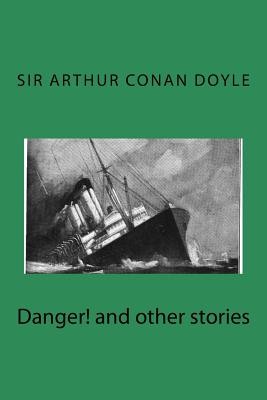| Danger! and other stories Contributor(s): Ballin, G-Ph (Editor), Doyle, Sir Arthur Conan (Author) |
|
 |
ISBN: 1541132483 ISBN-13: 9781541132481 Publisher: Createspace Independent Publishing Platform OUR PRICE: $16.03 Product Type: Paperback - Other Formats Published: December 2016 |
| Additional Information |
| BISAC Categories: - Fiction | Action & Adventure |
| Physical Information: 0.51" H x 5.98" W x 9.02" (0.73 lbs) 244 pages |
| Descriptions, Reviews, Etc. |
| Publisher Description: The story describes Britain's need to update its naval preparations. Norland, a fictional small country in Europe has been fighting England and is now invaded by an English army. However, Norland has a naval flotilla of submarines commanded by Captain John Sirius. Sirius uses his submarines to lay a naval blockade around the British Isles, so that no supplies can be landed. Consequently, the British start suffering famine. Some of the submarines are sunk and the British are congratulating themselves, when Sirius, waiting outside Liverpool, purposely torpedoes a large White Star liner, the RMS Olympic. The British end up surrendering. Analysis The story correctly anticipates the U-boat strategy which Germany would use in both World Wars to target ships bringing the foodstuffs Britain was unable to produce domestically. As would be confirmed by the events, the story forecast the need for the attackers to also target American ships bringing supplies to Britain - even at the price of violating International Law - forcing the British to introduce rationing among their population. citation needed] At the time numerous popular writings portrayed England facing Germany in an upcoming war. The best remembered include Erskine Childers' The Riddle of the Sands: A Record of Secret Service (1903) and "Saki"'s When William Came: A Story of London Under the Hohenzollerns (1913). Doyle's story is another example of this genre of invasion literature. Ironically, its conclusion foretold the fate of the Cunard liner Lusitania two years later. citation needed] Doyle uses a particular stylistic technique to evoke emotion in British readers, making them more receptive to the writer's warnings: the first person narration by the victorious enemy commander, full of gloating and condescension towards the "stupid" Britons. |